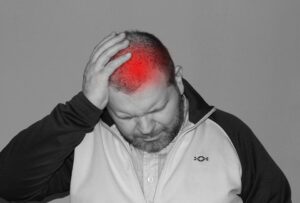Migraines are more than just headaches; they are a complex neurological condition that can cause severe pain, nausea, and sensitivity to light and sound. Effective pain management is crucial for those who suffer from migraines to improve their quality of life. This article explores various strategies for managing migraine pain, including medical treatments, lifestyle changes, and alternative therapies.

Understanding Migraine Pain
What Are Migraines?
Migraines are intense headaches often accompanied by nausea, sensitivity to light and sound, and visual disturbances. Unlike regular headaches, migraines can last for hours or even days, significantly impacting daily life.
Symptoms of Migraines
- Severe Headache: Intense, throbbing pain, often on one side of the head.
- Nausea and Vomiting: Common during migraine attacks.
- Sensitivity to Light and Sound: Bright lights and loud noises can exacerbate symptoms.
- Aura: Some people experience visual disturbances, such as flashes of light or blind spots, before the headache begins.
Causes and Triggers
Migraines can be triggered by various factors, including:
- Stress and anxiety
- Hormonal changes
- Certain foods or drinks
- Sleep disturbances
- Weather changes
Identifying and managing triggers is a key component of effective migraine pain management.
Pain Management Strategies for Migraines
Medication Options
- Acute Medications
- Pain Relievers: Over-the-counter (OTC) options
- Triptans: Prescription medications that block pain pathways in the brain.
- Ergots: Effective for longer migraines, though they may cause side effects.
- Preventative Medications
- Beta-blockers: Often used to lower blood pressure, they can also reduce migraine frequency.
- Antidepressants: Certain medications can help prevent migraines.
- Anticonvulsants: Drugs are sometimes prescribed for chronic migraines.
Non-Medication Therapies
- Lifestyle Changes
- Diet Adjustments: Avoiding trigger foods like caffeine or processed meats.
- Sleep Hygiene: Consistent sleep schedules can reduce migraine occurrences.
- Exercise: Regular, moderate exercise can help manage stress and improve overall well-being.
- Alternative Therapies
- Acupuncture: Can help relieve chronic pain, including migraines.
- Biofeedback: Teaches control over bodily responses to stress.
- Massage Therapy: Reduces muscle tension that may trigger migraines.
Lifestyle Changes for Migraine Management
Dietary Adjustments
Making changes to your diet can help manage migraines. Consider:
- Avoiding Trigger Foods: Identify and avoid foods that trigger your migraines.
- Staying Hydrated: Dehydration can trigger migraines, so drink plenty of water.
- Eating Regular Meals: Skipping meals can lead to low blood sugar, which can trigger migraines.
Stress Management
Stress is a common migraine trigger. Techniques to manage stress include:
- Relaxation Techniques: Such as deep breathing, meditation, and yoga.
- Regular Exercise: Physical activity can help reduce stress and prevent migraines.
- Adequate Sleep: Ensure you get enough sleep and maintain a regular sleep schedule.
Environmental Adjustments
Making changes to your environment can help reduce migraine triggers:
- Reduce Exposure to Bright Lights: Use dim lighting and avoid fluorescent lights.
- Minimize Noise: Use earplugs or noise-canceling headphones in noisy environments.
- Avoid Strong Smells: Stay away from strong perfumes, cleaning products, and other strong odors.
FAQs
1. What is the best treatment for migraines?
The best treatment varies by individual but often includes a combination of medications, lifestyle adjustments, and alternative therapies.
2. Can migraines go away on their own?
Migraines sometimes resolve without treatment, but persistent or severe migraines typically require medical intervention.
3. How can I prevent migraines naturally?
Natural prevention strategies include regular exercise, healthy eating, stress management, and practices like acupuncture or yoga.
Conclusion
Living with migraines can be challenging, but effective pain management is possible through a blend of medical treatments, lifestyle adjustments, and holistic therapies. By working with healthcare providers, tracking triggers, and exploring various treatment options, people with migraines can take control of their pain and improve their quality of life.
Schedule an appointment with our clinic Migraine pain management (432) 314-2028 or visit us https://tscmidland.com/
